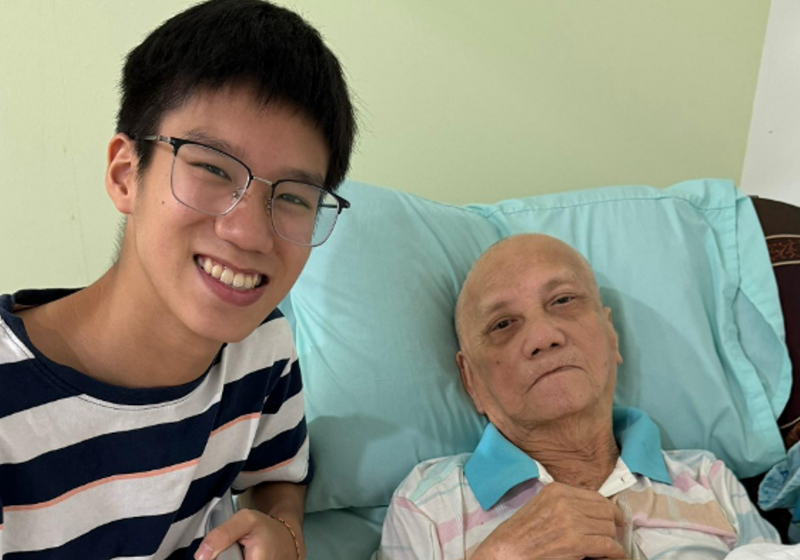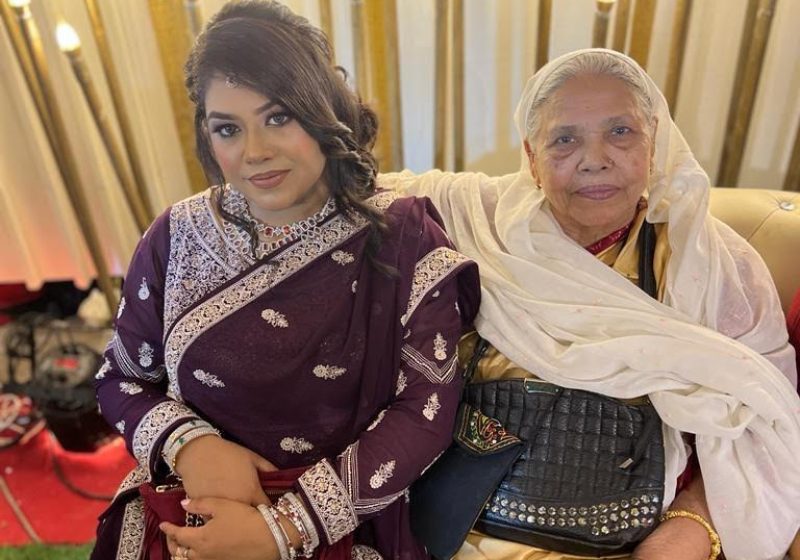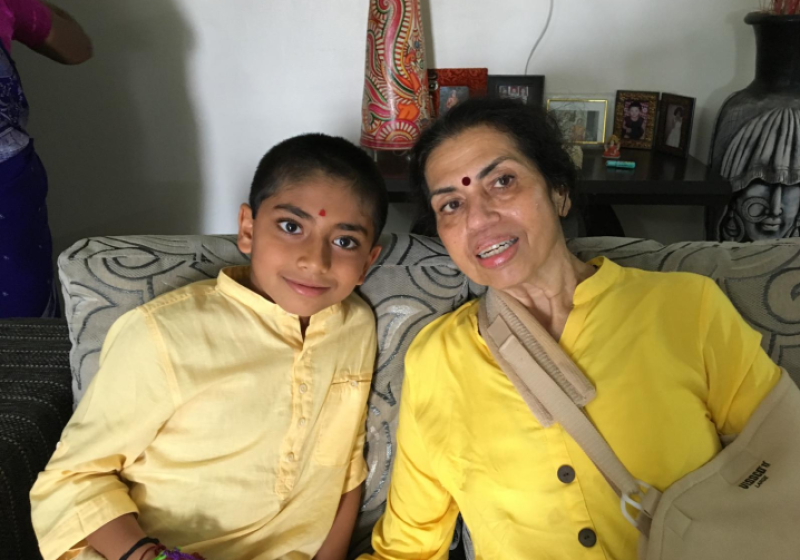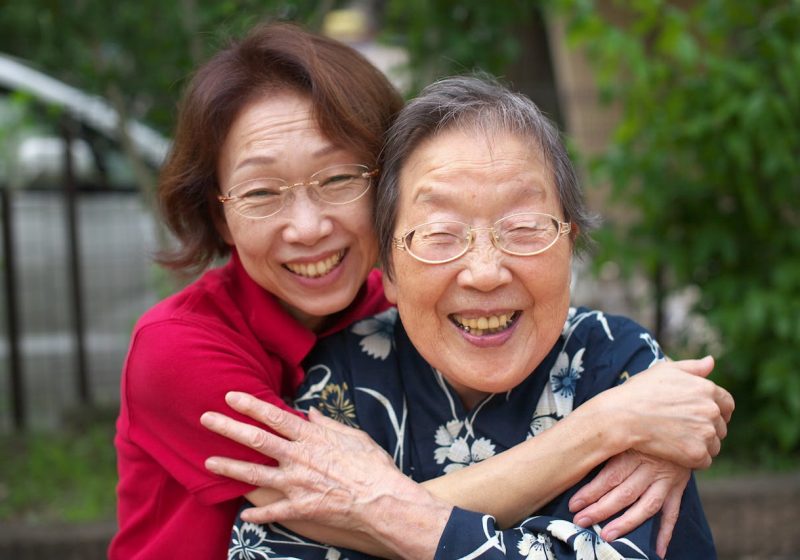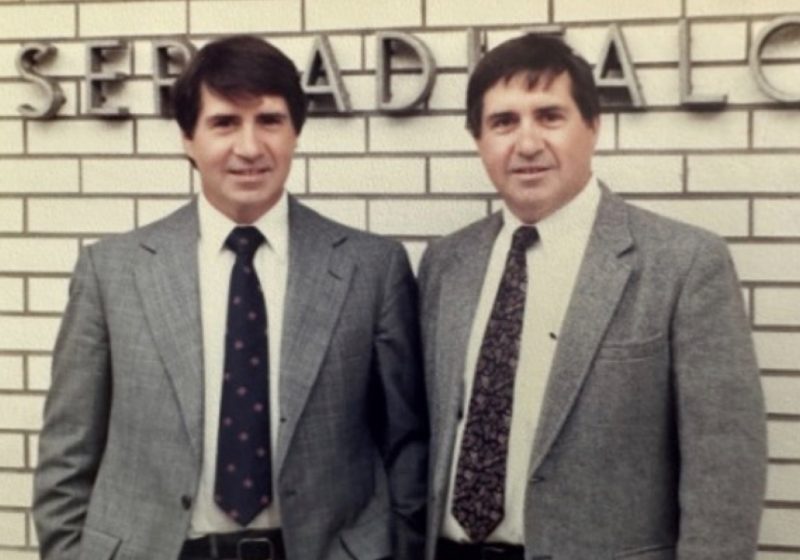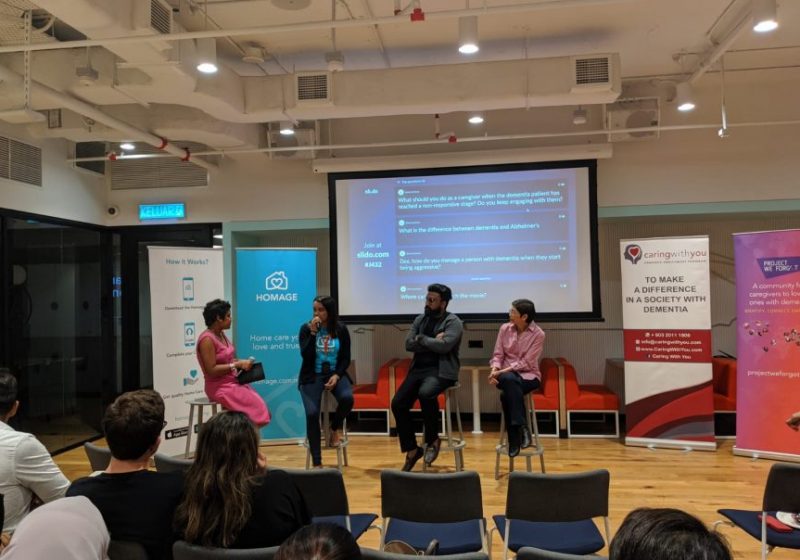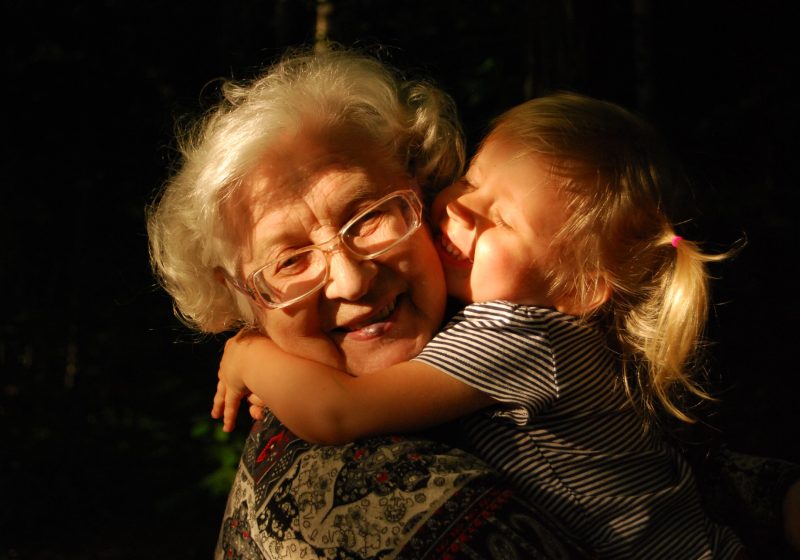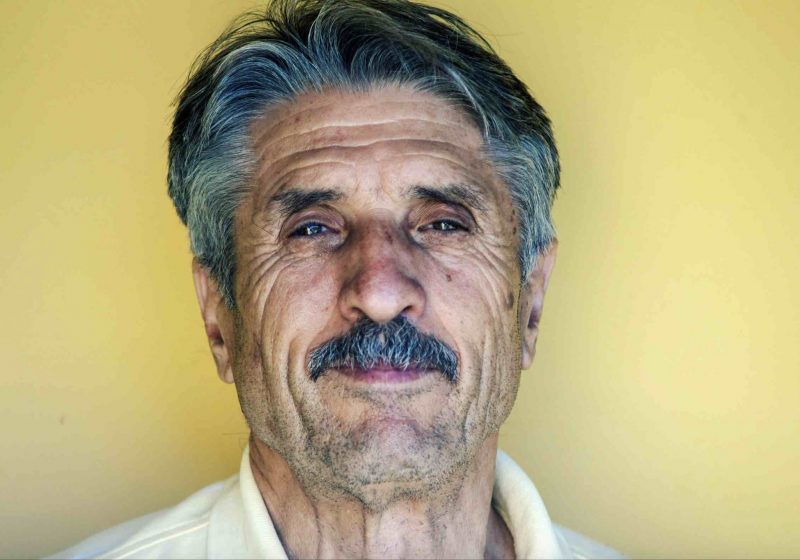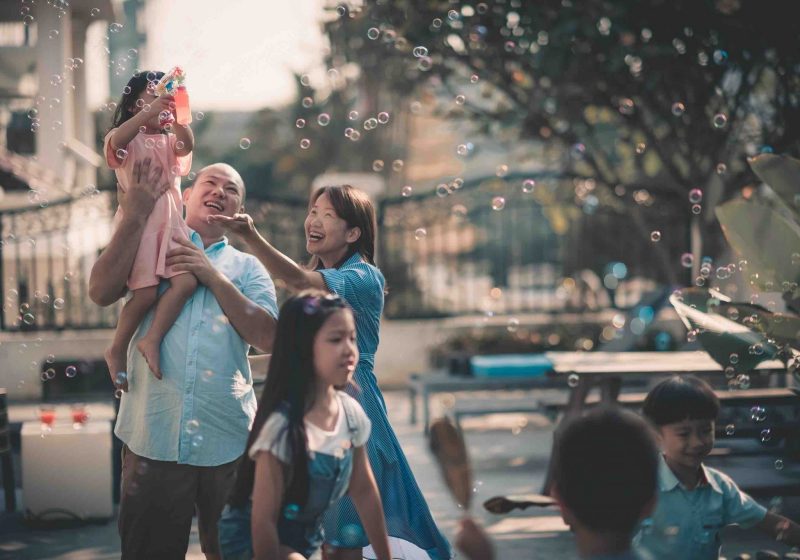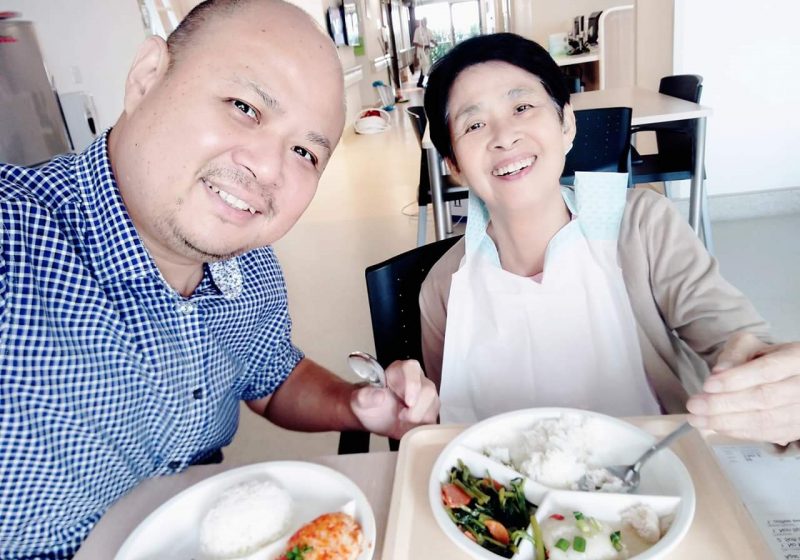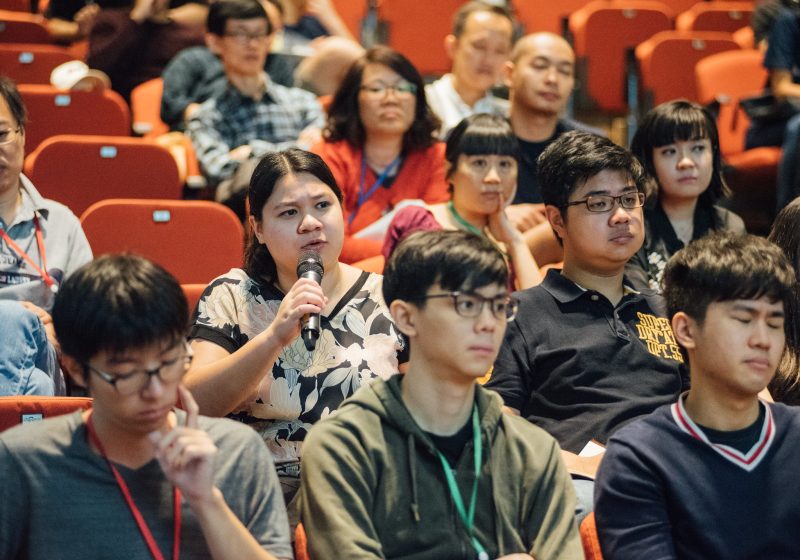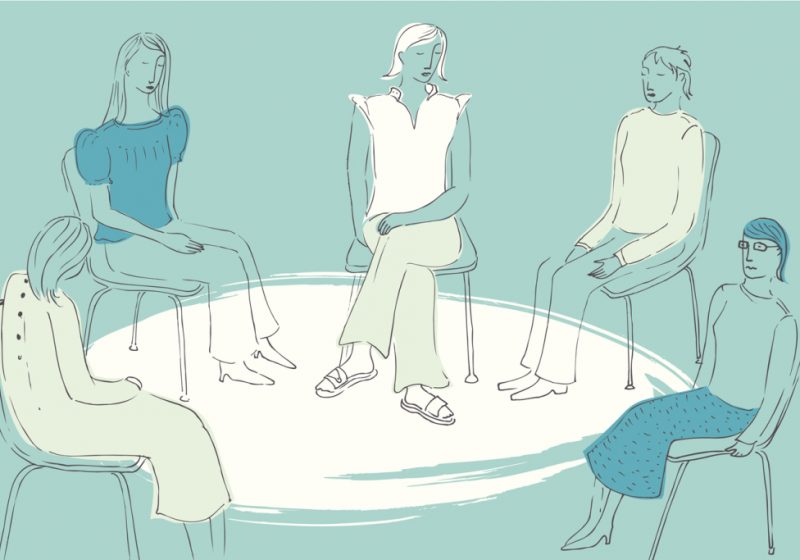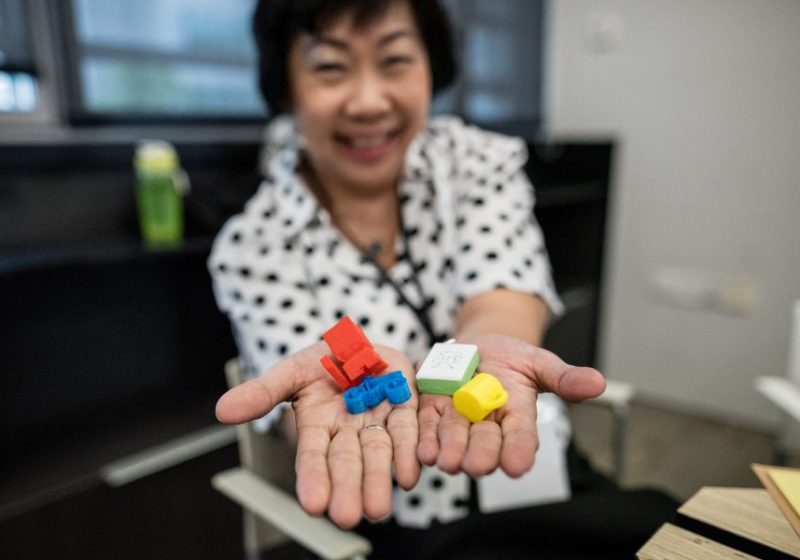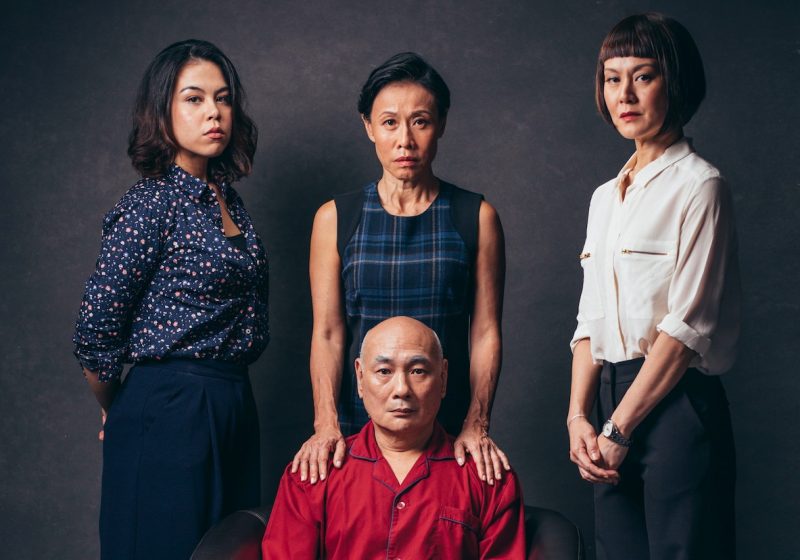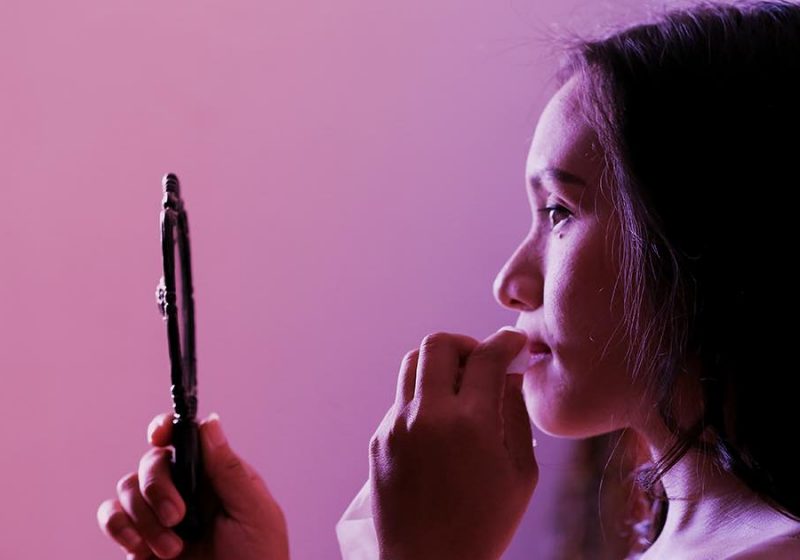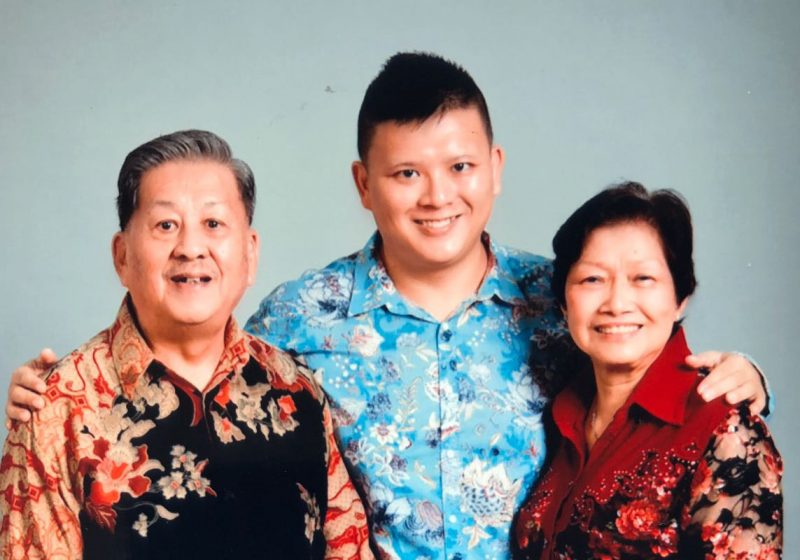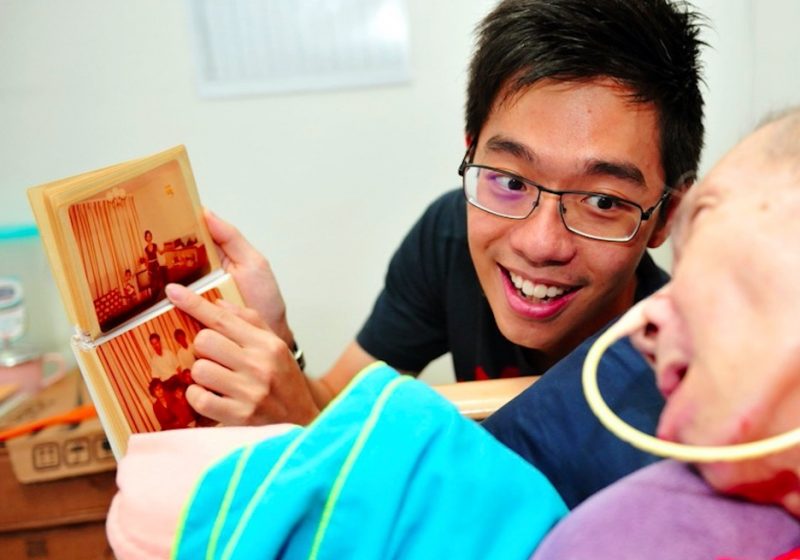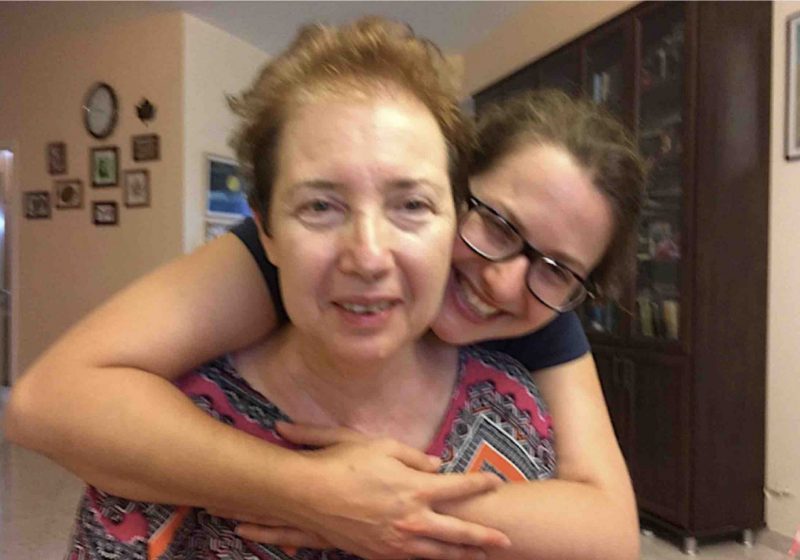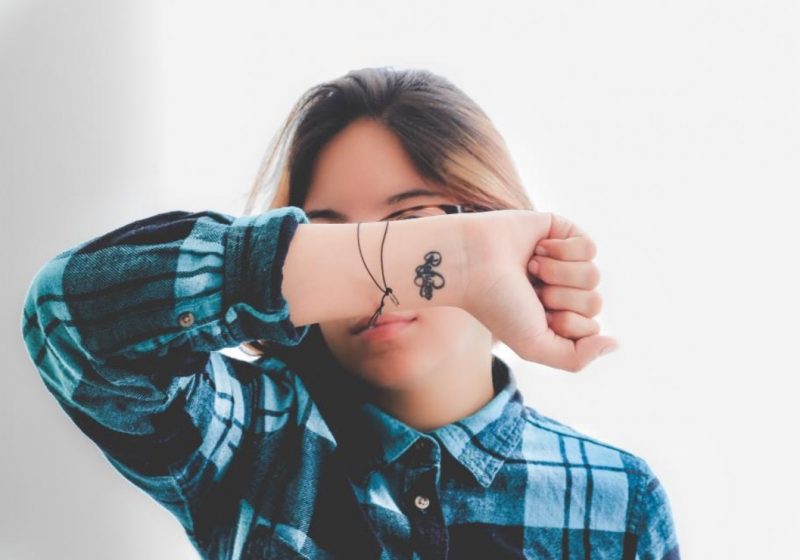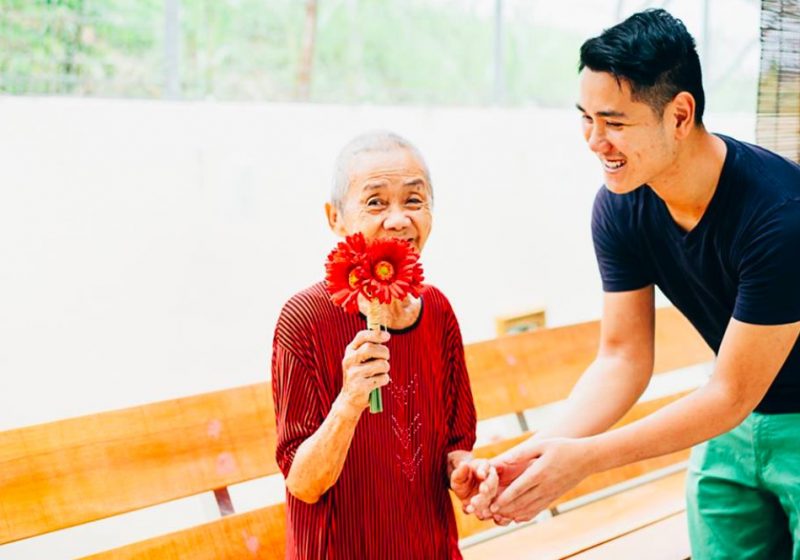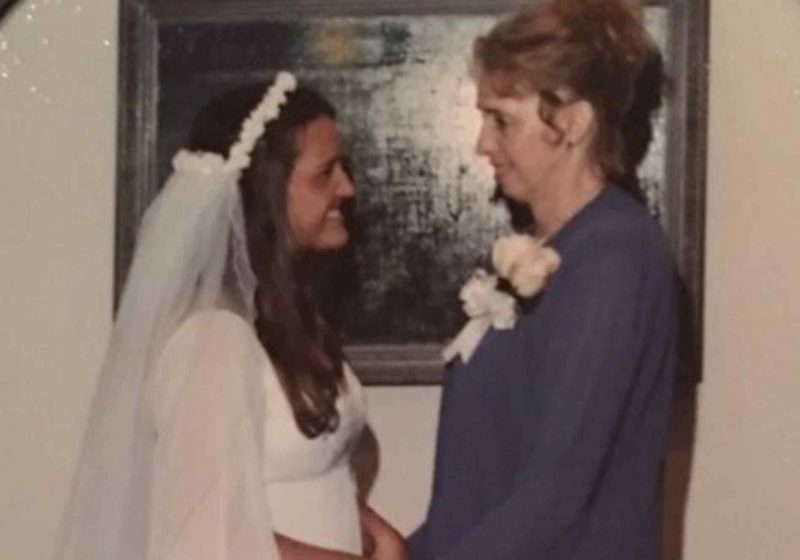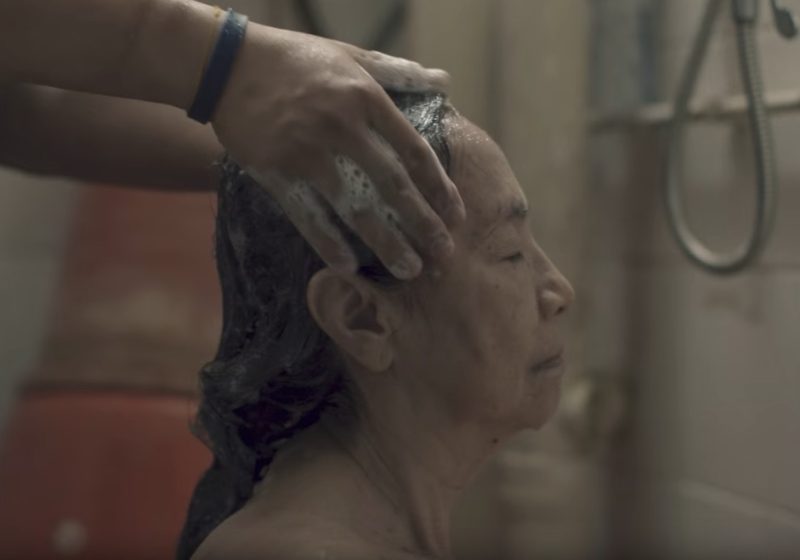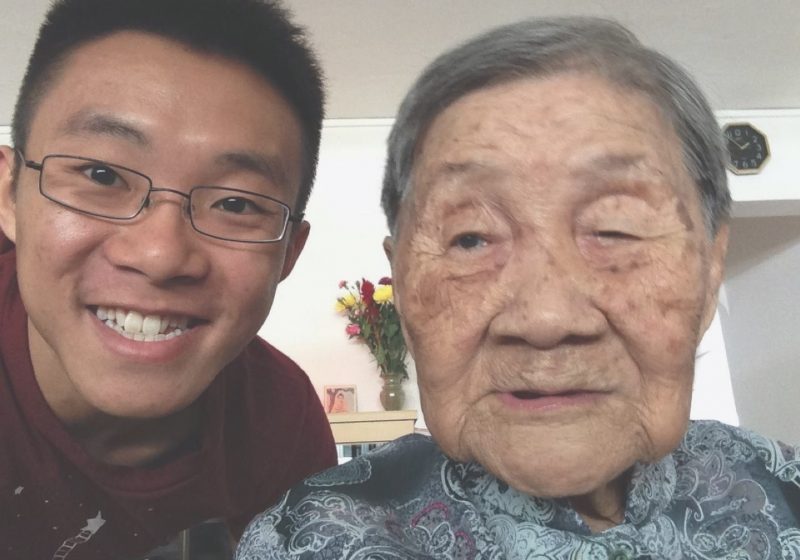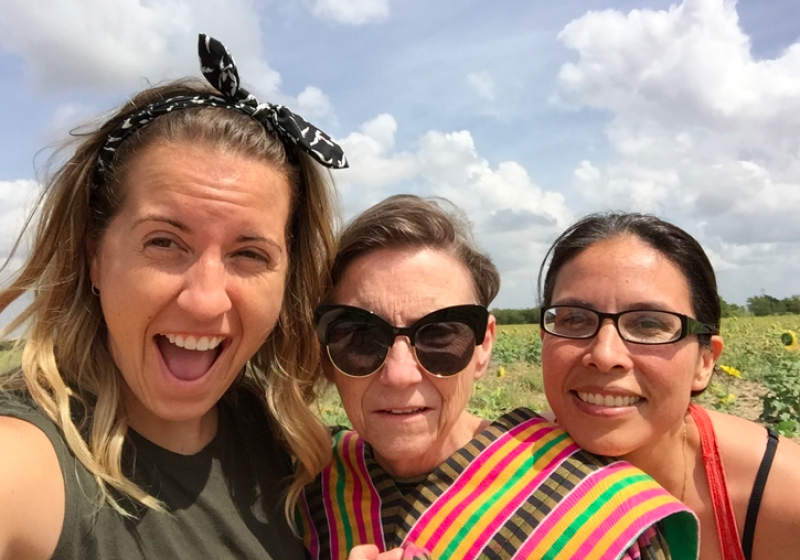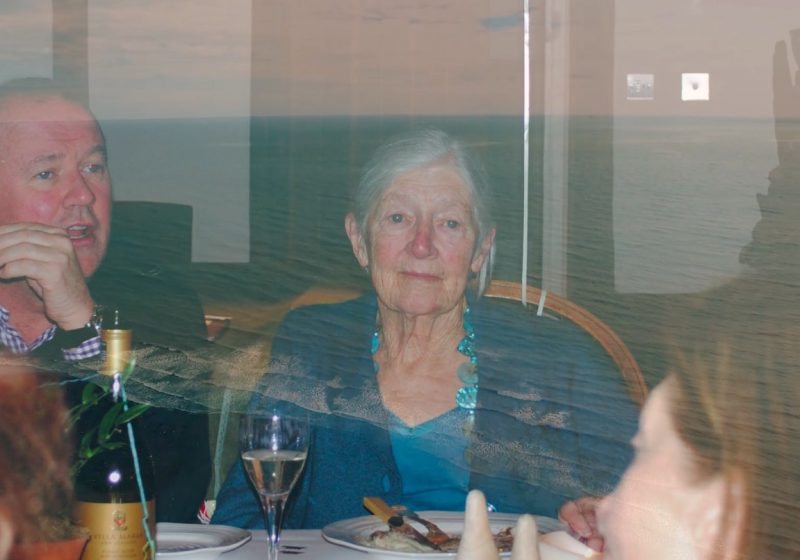“It was as though his old self had been suppressed beneath a layer of ice and could resurface through a crack for just that moment, just to tell us how he felt.”
Contributed by Daryl Kho, Edited by Cheryl Bok
In his younger days my Pa was a cheerful and jolly man who could hit it off with any stranger on the street. He used to work as a salesman for Rothmans, selling cigarettes. He spent most of his time on the road, driving all throughout Peninsular Malaysia to nearly every small town and city from North to South, including even the jungles where he sold smokes to blowpipe-bearing Orang Aslis (aboriginal peoples of Malaysia).
But after stroke and dementia struck him when he was 66, he became quiet and reclusive, it was a 180-degree change.

Growing up with “Mr Tan”
In my early childhood days, my dad was the scariest man in the world to me. I was a bit of a rascal as a kid, and my Papa often brought Mr Tan to visit me. Mr Tan as in Mr roTAN, that is (Malay for “the cane”).
But as I grew up, Mr Tan visited less, and my dad became my hero and my best friend. When I was in primary school we used to go for after-dinner walks together with my pet dog. That was when he would regale me with the tales from his past travels and fill me with quotes and sayings that have stuck with me like guideposts for my life. Those walks were something I so wish my daughter could have had with her grandpa, and the reason my book opens that very way: with them on a walk together.
Losing his superhuman power
I call my Pa the human “Waze” or “Google Maps”:. he could draw the route to every small town in Malaysia, straight from memory, complete with traffic lights and landmarks. It was one of life’s sad ironies that dementia stole this strength – his photographic memory – away from him.

Suddenly he burst out in tears and started telling each one of us that he loved and missed us so much. It was as though his old self had been suppressed beneath a layer of ice and was able to resurface through a crack for just that moment, just to tell us how he felt.
Post-dementia, I guess I felt my dad was a different person, a shell of who he used to be. Especially as he deteriorated, he always had a glazed, blank and faraway look. Looking at him I always wondered if the real him was still someone buried inside.
Something happened on a family roadtrip to Ipoh that reinforced that. My Pa had had a full day of laughing: in the daytime with my daughter tickling him in the car, and then at night watching a Jack Black comedy “Nacho Libre”. Suddenly he burst out in tears and started telling each one of us that he loved and missed us so much. It was as though his old self had been suppressed beneath a layer of ice and was able to resurface through a crack for just that moment, just to tell us how he felt.
Family was what kept us glued together
One of the outcomes from Pa’s dementia journey was how my mum, sister, and I grew much closer. We were each other’s support system as we overcame our family challenges together.
My sister and I permanently lived abroad, so my mum had to shoulder the overwhelming load, and mostly alone until we were able to get a dependable domestic helper. She played multiple roles – main breadwinner for the household; the taxi driver ferrying him for his various appointments from acupuncture, rehabilitation, day care, church; and also the nurse washing and dressing in the morning and night. For me, her devotion was the definition of marriage, being there for my father through for poorer, in bad times, in sickness, and even to this day after death.
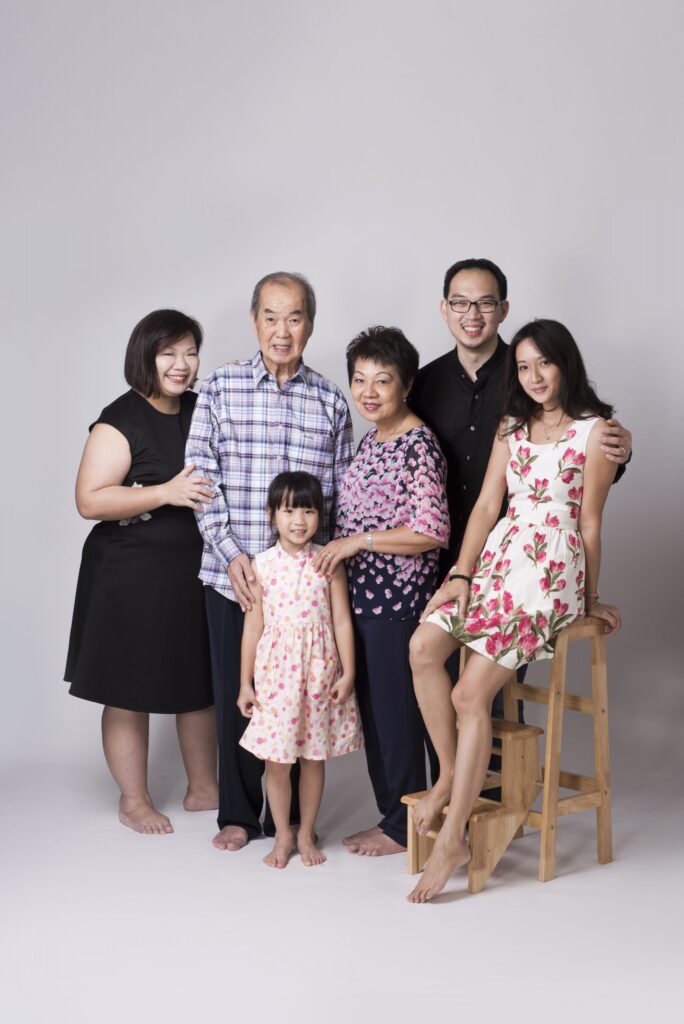
Thankfully, I also had a supportive employer who arranged for me to work remotely for a few months so that I could help out with my father’s post-hospital transition (to an eldercare center initially and then eventually back home).
If I could turn back time
I wish I’d known long before they struck that Pa’s stroke and dementia could both have been prevented. The key to it was health – both physical and mental wellness reinforced by a healthy lifestyle and dietary habits.
I also wish I knew better how to keep him cognitively stimulated beyond just leaving him in front of a television screen. Besides dementia day care, he was basically sitting in front of the television set all day.
Not least, I wish I had been less impatient and more understanding with his changed mental circumstances. For example, he would use to yell at us to turn off the TV when it was never on in the first place. Instead of trying to reason with him and then getting into a shouting match, it would have been so much kinder to have just said “OK I’ve turned it off!”.
Through this, I learned that sometimes the best way to move a person is not to push them but to take their hand and walk alongside them.
One of the outcomes from Pa’s dementia journey was how my mum, sister, and I grew much closer. We were each other’s support system as we overcame our family challenges together.
To the amazing carers out there
Hats off to you. You are amazing, living saints. But please don’t forget to take care of yourselves too.
Statistically, caregivers have a higher likelihood – even up to six times higher – of developing dementia themselves. This is because the burdens of caregiving could also breed chronic stress, social isolation, depression, lack of exercise, sunshine, and poor nutrition. In other words, all the very instigators of dementia.
Lastly, please know that you are not alone in this journey. Remember to seek help, including through community care partners like Project We Forgot, TOUCH Community Services in Singapore, or your local Alzheimer’s Disease International network like Dementia Singapore or ADFM Malaysia.
Daryl’s book Mist-Bound: How to Glue back Grandpa is available in all major bookstores. Visit darylkho.com for more info on the book!


